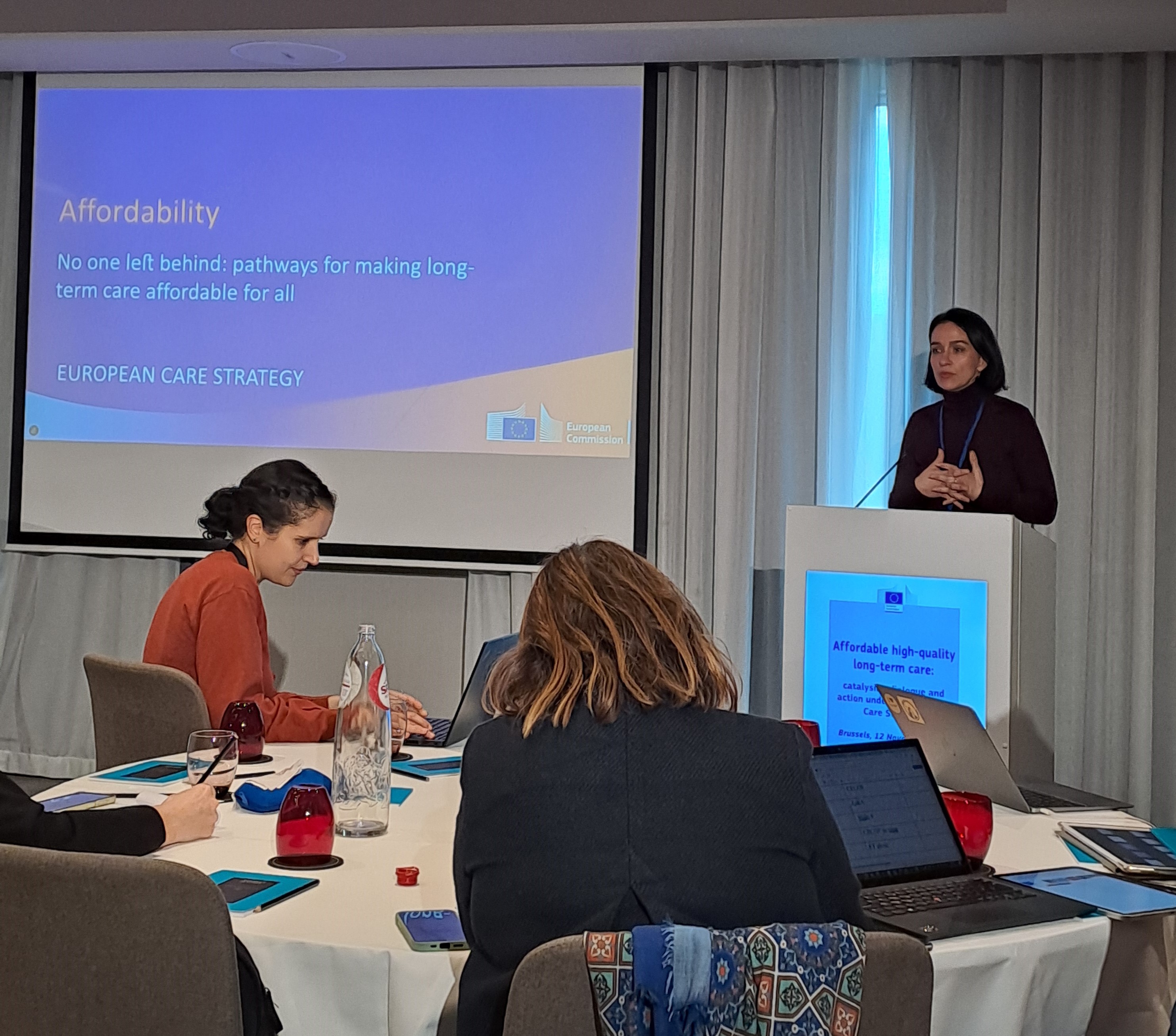
The conference aimed to review the actions taken under the European Care strategy and discuss the challenges of long-term care as well as how to address them via actions and commitments at both the European and national levels. Invitations were extended to policymakers, civil society organisations, and other stakeholders, and the speakers included the European Commission, the Organisation for Economic Co-operation and Development (OECD), the World Health Organisation (WHO), the International Labour Organisation (ILO), and others.
During the morning, a panel discussion took place on global perspectives on long-term care, after which the WHO’s new toolkit on the State of long-term care was launched, which is designed to support policy- and decision-makers in their efforts to reform and transform long-term care systems by promoting learning, collaboration, and trust.
In the afternoon, four parallel sessions were organised:
- Session 1: No one left behind: pathways for making long-term care affordable for all (affordability)
- Session 2: Elevating quality: pathways to more options and excellence in long-term care (quality and availability)
- Session 3: Beyond applause: pathways to improve attractiveness of the long-term care sector (workforce)
- Session 4: Pathways to supporting informal caregivers (informal carers)
Diana Dovgan, CECOP’s Secretary-General, took part in Session 1 as a speaker and as rapporteur. During the session, she underlined the sustainable and resilient nature of cooperatives, which ensures affordable care and provides quality work conditions to workers. Cooperatives address diverse socio-economic inequalities associated with care and make it available even to the most disadvantaged citizens. Care cooperatives are varied: they may be worker-owned, where the care workers are at the centre of decision-making, or they may have a multistakeholder governance, that is, they include care recipients, their family members, public authorities and other stakeholders alongside the care workers in their governance.
However, there are several challenges impacting the affordability of services. For instance, while public procurement is essential when it comes to the organization of care, many purchasing public authorities place an overwhelming weight on the price criterion in public procurement. This, in turn, puts downward pressure on the wages of care workers, impacting the quality of the service provided. To this end, the upcoming revision of the Public Procurement Directive is an opportunity to take into account the specific features of the long-term care sector and to promote and support community-based care model, such as cooperatives.
Moreover, as of recently, cooperatives in multiple countries are promoting more comprehensive partnerships with public authorities. CECOP is calling for a shift toward a more integrated partnership model, based on a joint analysis of community needs and long-term planning of services.
Another challenge that is specific to the elderly care sector is financial speculation, as care cooperatives are being squeezed out of the sector by profit-oriented companies benefiting from large investment funds. This phenomenon occurs also because of the way public contracts are managed, which aim to streamline processes and standardise services and cut costs as far as possible.
According to us, one of the main necessary actions is a paradigm shift in public procurement and service concessions – from seeing care as an expense, where financial costs must be minimized regardless of the implications for the care recipients, to treating it as an essential service to the community where quality and affordability must be prioritized.







 Employment & Social Inclusion
Employment & Social Inclusion 

